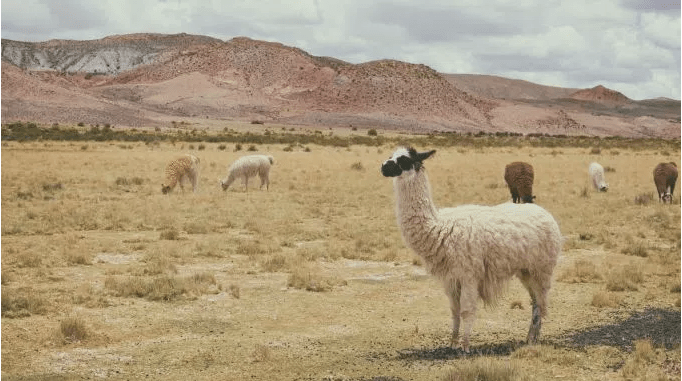
9 min read
“We are actually leaving on the very same day school is getting out. We have 5th grade graduation in the morning, and a flight to Bolivia in the afternoon. We don’t waste time.”
-Jojo Bobo
I stumbled across the blog Corporate Monkey CPA last week after reading a post titled “What’s It Like Living On $10,000 Per Year?” featured on Rockstar Finance.
After digging through the blog archives for a while I realized that Jojo Bobo, the man behind the blog, not only had the world’s greatest alias but also a story worth sharing.
A bit of background:
Jojo Bobo is a 43-year-old who worked as a corporate accountant in Silicon Valley for 15 years until he recently moved to a small town in Bolivia with his wife and two kids to take a gap year from working. His family bought a farm and built a house in Villa Abecia, which happens to be the town his wife grew up in.
They’re currently enjoying the slower-paced lifestyle of Bolivia and renting out their house in California for the year while they’re gone. Jojo Bobo and his family saved over 50% of their income over the past 10 years to achieve the financial flexibility to take this gap year.
The interview:
I reached out to Jojo Bobo via email and he responded almost immediately, graciously offering to let me interview him about his current living situation and his family’s finances. Here’s our exchange:
Zach: It seems like many people discover the idea of living with a high savings rate from Mr. Money Mustache. But his blog started back in 2011 and I noticed you’ve been saving 50% of your income for the past 10 years. Where did you develop this saving mindset? Have you always been a natural saver?
Jojo Bobo: Yes, I’ve always been a big saver. It comes from my grandpa, who was one of those Great Depression babies that saved everything – a hoarder. I’m not a hoarder, but I’ve inherited his fear of losing my financial security, and I always put saving as a priority – even when I was making $10,000 per year as a student.
But it wasn’t until the last few years or so that I realized I might be able achieve financial independence. When you have only a few thousand dollars of net worth, financial independence seems like such an impossibility. But, after years and years of saving, all of a sudden it becomes reachable.
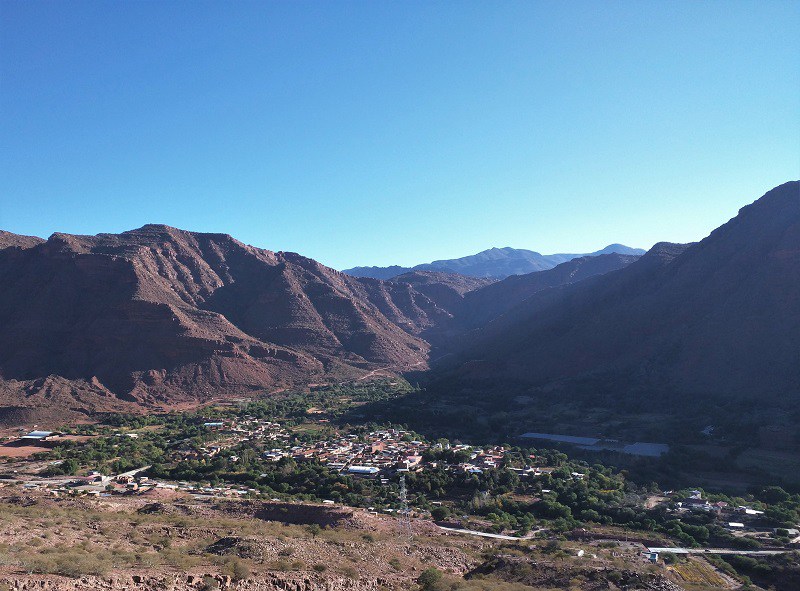
Zach: That leads to my next question…How long have you been planning this gap year? When did this idea first begin to form?
Jojo Bobo: I think we started seriously talking about doing this about three years ago. My wife is from Bolivia, and we used to go visit her family every two years or so. It was the only big vacation we took for ten years. We stayed in hotels in the city, and none of us really enjoyed it – even the kids were bored. So, we decided to get a house of our own out in a beautiful rural area where we could stay during our visits, rather than being bored in some hotel.
It only cost initially $30,000 or so for the house. We figured that by the time our kids were grown up, the house would have practically paid for itself, and probably would appreciate in value too. We didn’t think about actually coming to live in the house until three years ago.
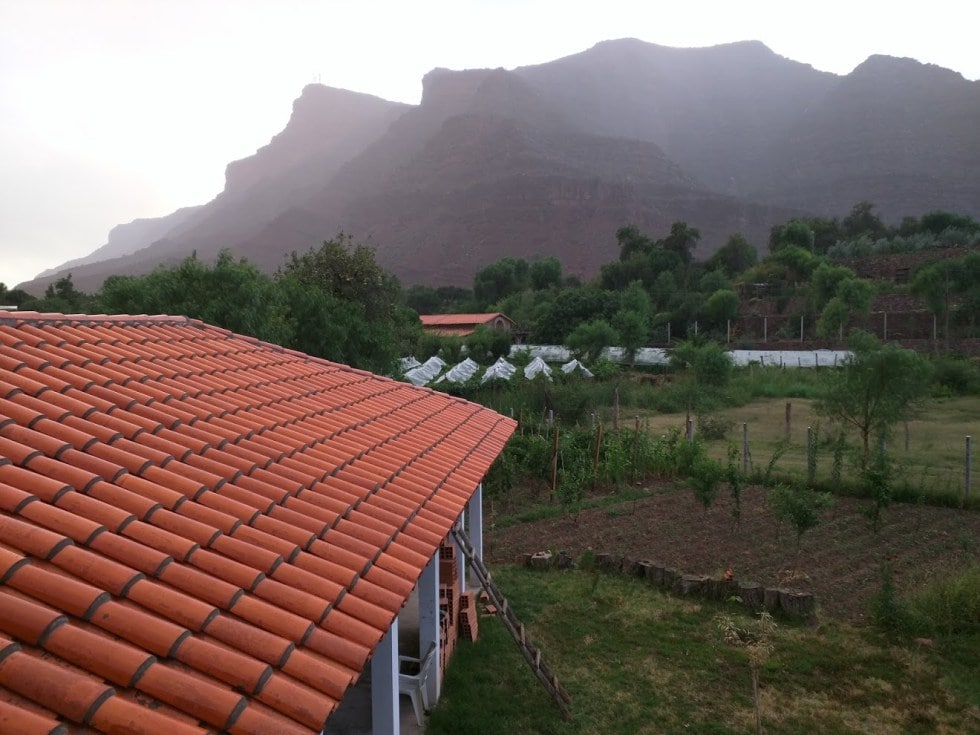
Zach: I noticed that you’re living in the same town your wife grew up in. Would Bolivia have been on your radar as a place to live if she didn’t grow up there?
Jojo Bobo: No way. We actually were thinking of going to another country at first – Uruguay or Central America. We wanted to experience a very different lifestyle. But, since we had the house in Bolivia, it made more sense to come here.
Related: 7 Days in Uruguay (with Kids)
Zach: Does everyone in your family speak Spanish and if not, is it ever a struggle to communicate with the locals?
Jojo Bobo: My Spanish is fluent, but it is still a struggle to communicate. More precisely, it’s a struggle to relate. People here are very different from Americans. It doesn’t bother me much because I have my family. I mostly stay in our house, working on projects, in the garden, or on my blog. But, living here by myself would be difficult – not from a communication perspective, but from a lack of good friendships and deep relationships. People here just don’t have the same interests.
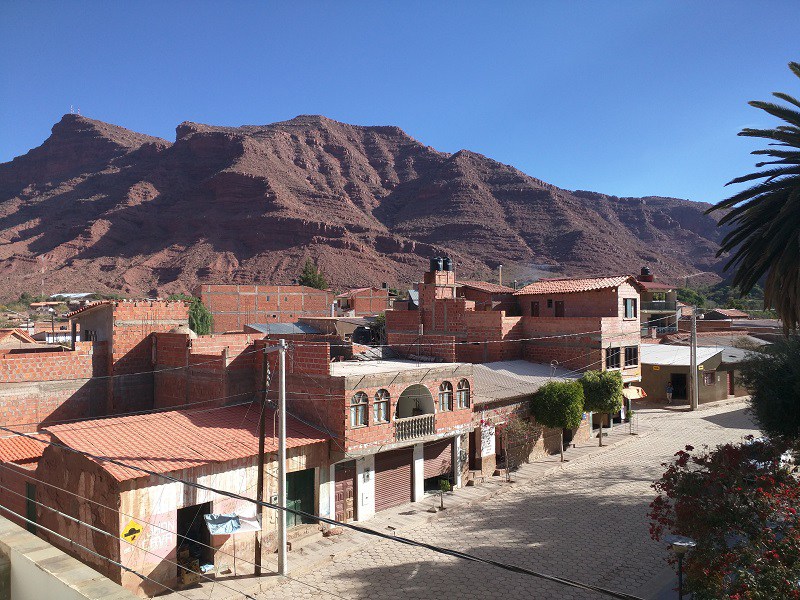
Zach: Obviously the cost of living is considerably lower in Bolivia compared to California. Aside from the financial benefits, are there any aspects of everyday life in Bolivia that are considerably better or worse than living in Cali?
Related: An Extreme Cost of Living Comparison: Southern California vs. Rural Bolivia
Jojo Bobo: That’s a really great question. Yes, there are some things about living in Bolivia that are straight-up better than California. For one, people here are not in such a rush. They don’t take work so damn seriously. What they do take seriously is family and friendships. My daughter gave a little presentation in class a couple weeks ago, trying to explain what our Thanksgiving holiday is. She explained that we have a large meal with extended family until we’re totally full, and then we watch football on TV together. Everyone in class was like, “don’t you do that every weekend? Why is that such a special day?” Americans cherish their personal independence. Sometimes I think we’ve taken it too far.
In Bolivia, we are much more connected with nature. We grow most of our own food, and I spend most of my days outdoors, whereas in California I took Vitamin D supplements because I didn’t get enough sun. I was indoors all day long, almost every day. I like the outdoor lifestyle better. Of course it is possible to live an outdoor lifestyle in the U.S., but not many people do it. In Bolivia, it’s what everyone does.
The other major difference between our life in Bolivia and in California is the village lifestyle. I lived in the suburbs in California, where you often don’t even know your neighbor. In our Bolivian village, you see the same people every day, and you know everything there is to know about them. People here grow up together, come of age together, and grow old together. It’s a real tight community. In some ways, I prefer the privacy and anonymity of California, and in other ways, I like the strong sense of community in our village. They are very different.
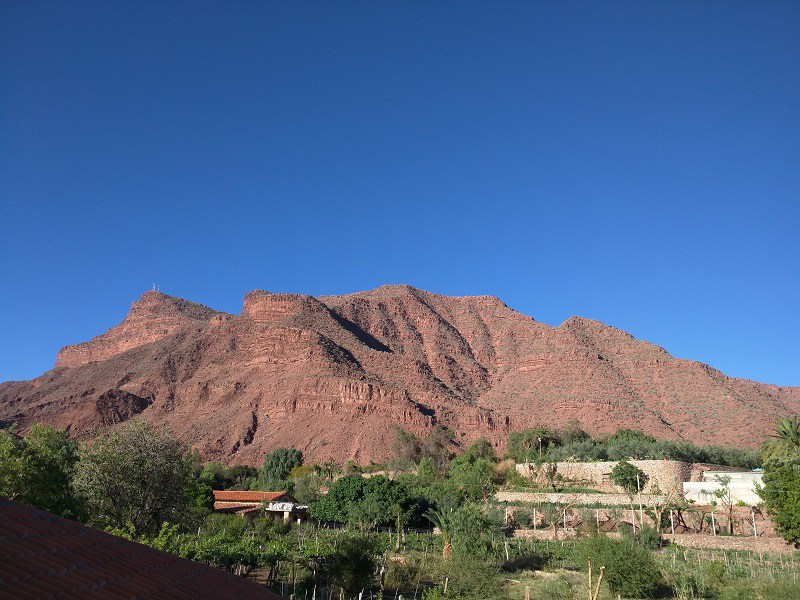
Zach: Out of my own curiosity, how’s the WiFi down there?
Jojo Bobo: There are only three houses in our village that have it. We’re one of them. We have internet via a microwave relay. It costs us $65 per month for 1MBps. That’s way more money than most people in our village can afford. We had no internet for the first three months, until we learned about the microwave. That sucked.
In Bolivian cities, cell networks are pretty good, but public Wi-Fi is pretty rare. Most Bolivians have internet only through their cell phones.
Zach: If you moved there in June, it has been about 6 months of living down there. Does it feel like one year will be a good amount of time for your “gap year” or do you wish you had made it shorter or longer?
Jojo Bobo: I definitely don’t want it to be shorter. Summer is just getting going, and we’re all discovering new things all the time – especially large and unusual bugs. I’ve almost finished building an outdoor oven, even though I’ve never done anything like it before. I’m homeschooling the kids, which is an adventure of its own. Boredom is about the furthest thing from my mind. No, life is so rich right now, I don’t want this to end any time soon. I don’t miss much about California, except family and friends. Oh, and beer. The beer here sucks.
I don’t think I’ll be ready to go back in six months. But, we will. One of the biggest reasons we don’t just move here permanently is because the schools are not good. If we want our kids to get into a good U.S. university, they’d better go to high school in the U.S. – and that’s just around the corner.
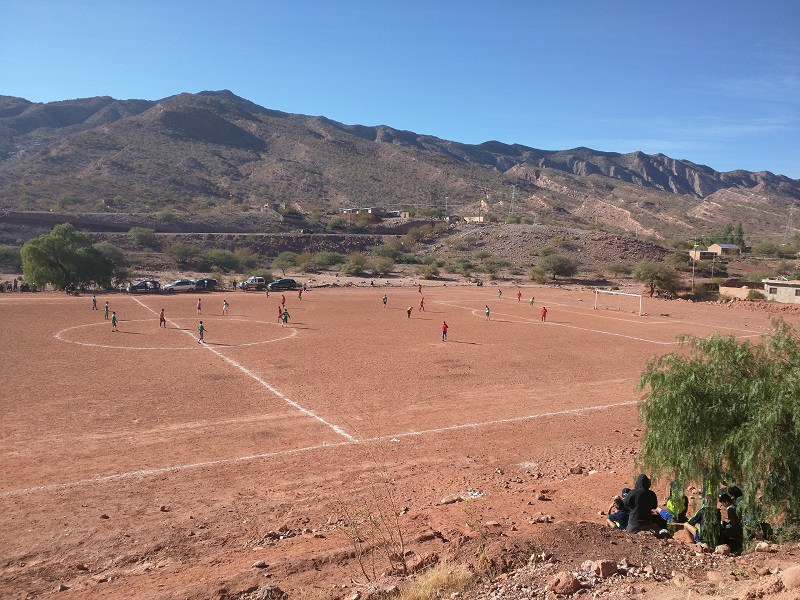
Zach: When this gap year is over, what are your plans for work?
Jojo Bobo: I will go back to work, sadly. I will look for temporary / project work in corporate accounting. I hope to work only six to nine months per year. I don’t want to be a full-time employee again.
Zach: What about long-term financial goals? Early retirement? A combination of work with more gap years? A blend of passive income and part-time work?
Jojo Bobo: Here’s the plan: I’m done saving. We’ll make just enough money to cover our costs and let our nest egg grow untouched. Our family needs about $60k per year to cover our costs in California, including our mortgage and health insurance. My wife usually makes $20k – $30k from her home business, so that means I just need to make another $30k-$40k or so to cover our costs. I can certainly make that in six months of project work.
That leaves the other six months to do better things. The kids will be in school, but during summers, we want to explore. We want to spend a summer in Spain, Japan, Australia, the National Parks, and I’m sure we’ll be back in Bolivia… we have a big appetite.
Once the kids get close to college, I’ll stop working completely, because that will dramatically reduce our college tuition bills. We may come back to Bolivia for a few years at that time – not to save money, but to live a better lifestyle.
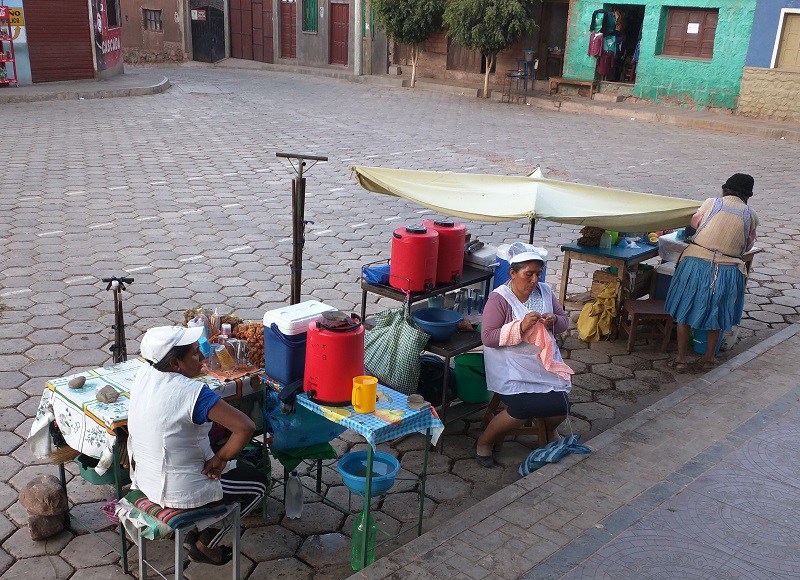
Zach: That sounds like an incredible plan. Lastly, do you have any advice for someone in a similar situation as you with a full-time job and a family who is considering a gap year?
Jojo Bobo: First, you only live once. Second, work will always be there (don’t believe the A.I. hype – there will always be some sort of work). Third, there is no way we could have had the courage to do our gap year without seeing and knowing this place first. Especially if you’re bringing a family with you, I’d highly recommend taking a scouting trip or two to get to know where you’re going. Even though we knew where we were going, the move itself wasn’t easy. But it turned out that all our fears were unfounded, and they faded rather quickly once we got here.
I want to thank Jojo Bobo for taking the time to answer my questions and sharing the details of his gap year abroad. If you want to learn more about Jojo Bobo I highly recommend checking out his site Corporate Monkey CPA. He has a plethora of insightful posts and clearly a deep understanding of personal finance. He also posts regularly so it’s a great resource to add to your blogroll.
- The Ad Revenue Grid - August 6, 2021
- Attract Money by Creating Value for a Specific Audience - July 13, 2021
- The 5-Hour Workday - March 26, 2021
Full Disclosure: Nothing on this site should ever be considered to be advice, research or an invitation to buy or sell any securities, please see my Terms & Conditions page for a full disclaimer.

Very cool story, always love hearing about people from different walks of life. As a California resident myself, I couldn’t imagine all the changes that would come from moving to Bolivia! Sounds like it’s been an awesome move for the family though, thanks for sharing.
Indeed, the differences between Cali and Bolivia are pretty significant. It definitely helps that Jojo Bobo’s wife grew up in the town they’re currently living in – like he said, Bolivia would have been an unlikely place to move if they didn’t know the area well. I thought it was a fascinating story as well 🙂
Awesome story, thanks for sharing. I think the huge in was the wife who had lived there. Many people would not know the first place to start if they wanted to attempt something like that.
I’m sure knowing someone who had previously lived there was a huge factor in their decision. He gives great advice though – no matter where you plan on moving, it’s good to live in the area or at least visit it for an extended period of time before making the commitment to move.